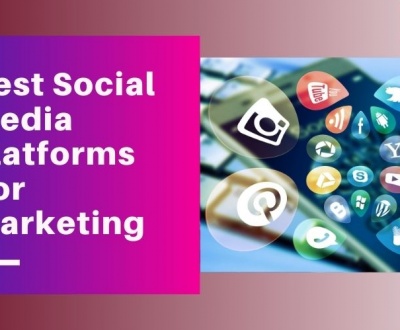Artificial Intelligence (AI) has made big changes in how we make and share information. One of these changes is AI-generated content, where AI can create social media posts, pictures, and even videos on their own. This technology makes it easy and quick to make lots of content, which is great for businesses and creators who need to get their message out fast.
But, just like any new technology, AI-generated content comes with some challenges too. People worry about whether the content is accurate, original, and if it’s okay to use in certain ways.
Let’s dive into the pros and cons of AI-generated content in 2024, exploring how it can benefit your business and the potential pitfalls to watch out for.
The Pros of AI-Generated Content
1. Efficiency and Speed
One of the most significant advantages of AI-generated content is its ability to create content at an unprecedented speed. With tools like Addlly AI’s 1-Click Blog Writer, businesses can generate high-quality, targeted content in a matter of seconds. This efficiency allows marketers to focus on other critical aspects of their campaigns, such as strategy and analysis, while the AI handles the time-consuming task of content creation.
2. Cost-Effective
Hiring writers can be expensive. AI, on the other hand, can produce content for a fraction of the cost. According to McKinsey, businesses that implement AI in their operations can reduce costs by up to 30%. This is particularly beneficial for small businesses and startups with limited budgets.
3. Consistency
AI ensures a consistent tone and style across all content. This is crucial for maintaining a strong brand identity. A study by Lucidpress showed that maintaining a consistent brand across all platforms can potentially increase revenue by up to 23%. Whether it’s a blog post or a social media update, AI can keep the voice uniform.
4. SEO Optimization
AI tools like the Shopify AI Blog Writer are equipped with SEO capabilities. They can seamlessly integrate keywords, optimize meta descriptions, and follow best practices to improve search engine rankings. This helps in driving more traffic to your website.
According to BrightEdge, organic search drives 53% of all website traffic. By using AI tools like Addlly to optimize content for SEO, businesses can significantly boost their online visibility and attract more potential customers.
5. Personalization
AI can analyze user data to create personalized content. For example, it can tailor blog posts or product descriptions to match the preferences of different audience segments. This personalized touch can enhance user engagement and satisfaction.
6. 24/7 Availability
Unlike human writers, AI doesn’t need breaks or sleep. It can work around the clock, providing content whenever needed. This is especially useful for businesses operating in multiple time zones. With AI, companies can maintain a continuous content flow, ensuring they stay relevant and responsive to their audience’s needs.
The Cons of AI-Generated Content
1. Lack of Creativity
While AI is great at producing factual and structured content, it often falls short in creativity. Human writers bring a unique flair and originality that AI struggles to replicate. This can make AI-generated content feel bland or robotic.
2. Quality Control
AI-generated content can sometimes lack the nuance and depth that a human writer provides. It might miss the mark on context or cultural references, leading to content that feels off or inappropriate.
3. Dependence on Data
AI relies heavily on data to generate content. If the data is outdated or incorrect, the content will reflect those inaccuracies. This can harm the credibility of your brand.
4. Ethical Concerns
There’s an ongoing debate about the ethical implications of AI-generated content. Issues like plagiarism, misinformation, and job displacement for human writers are significant concerns. Businesses need to navigate these ethical waters carefully.
5. Job Displacement
The rise of AI-generated content poses a threat to human writers and content creators. As businesses increasingly turn to AI for content creation, there is a risk of job displacement. A report by McKinsey Global Institute estimates that by 2030, up to 800 million jobs could be lost to automation, including roles in content creation and journalism. This has led to concerns about the future of creative professions and the need for new skills and job opportunities.
6. Initial Setup and Maintenance
Implementing AI content tools requires an initial investment in time and resources. Regular updates and maintenance are also necessary to keep the AI functioning optimally. This can be a hurdle for businesses without the technical know-how.
What’s the Best Way to Use AI for Content Creation?
In 2024, the best way for companies to create content is by combining AI and human skills. They use AI writing tools for some routine work, but have skilled human writers and editors for important, creative, or brand-sensitive projects.
AI tools like Addlly AI blend AI language models with human oversight really well. Addlly has AI tools that can quickly generate things like blog posts, social media posts, newsletters and more. Then, human editors will review and improve the drafts the AI wrote. They ensure the content is high-quality, factual, on-brand, and well-written.
As AI writing technology keeps evolving, companies will adjust how they use it along with human writers. But finding this balanced hybrid approach of combining AI and human skills will likely remain the best way to get the advantages of AI while avoiding its downsides.
Conclusion
AI-generated content is a powerful tool with many benefits, from efficiency and cost savings to SEO optimization and personalization. However, it also has its drawbacks, such as a lack of creativity and potential quality issues. Businesses must weigh these pros and cons carefully.
In 2024, AI-generated content continues to evolve, offering exciting possibilities for businesses willing to embrace this technology. Whether you’re a small startup or a large corporation, there’s no denying the impact AI can have on your content strategy.
FAQS
What is AI-generated content?
AI-generated content is created by artificial intelligence algorithms. These algorithms analyze data and use it to write text, such as articles, blog posts, social media updates, and more. The goal is to produce content that reads like it was written by a human.
How does AI create content?
AI uses natural language processing (NLP) and machine learning to understand and generate text. It learns from vast amounts of data, including books, articles, and other written material. This helps it understand grammar, context, and style, allowing it to create coherent and relevant content.
What are the benefits of using AI for content creation?
AI-generated content is fast and efficient. It can produce large volumes of content quickly, which is ideal for businesses needing constant updates. It is also cost-effective, as it reduces the need for hiring multiple writers. Additionally, AI can ensure consistency in tone and style, personalize content for different audiences, and optimize it for search engines.
Are there any drawbacks to AI-generated content?
Yes, there are some downsides. AI can lack creativity and may produce content that feels robotic or bland. It can also struggle with complex topics that require deep understanding and expertise. Additionally, AI relies on data, so if the data is incorrect or outdated, the content may be inaccurate. Ethical concerns, such as plagiarism and misinformation, are also important to consider.
Can AI-generated content replace human writers?
While AI can handle many content creation tasks, it is unlikely to fully replace human writers. Human creativity, intuition, and expertise are still essential for producing high-quality, engaging content. AI is best used as a tool to assist writers, rather than replace them.
How can businesses use AI-generated content effectively?
Businesses can use AI-generated content to quickly produce blog posts, social media updates, product descriptions, and more. It is particularly useful for tasks that require a high volume of content or need to be done quickly. However, it is important to have human oversight to ensure quality and accuracy.
Is AI-generated content SEO-friendly?
Yes, many AI tools are designed to optimize content for search engines. They can integrate keywords, create meta descriptions, and follow SEO best practices to improve search engine rankings. This helps drive more traffic to your website.
How accurate is AI-generated content?
The accuracy of AI-generated content depends on the quality of the data it is trained on. If the data is accurate and up-to-date, the content will likely be accurate as well. However, it is important to have human oversight to catch any errors or inaccuracies.
What are the ethical concerns with AI-generated content?
There are several ethical concerns, including plagiarism, misinformation, and job displacement for human writers. It is important for businesses to use AI responsibly and ensure that the content is original, accurate, and ethically produced.
Can AI personalize content for different audiences?
Yes, AI can analyze user data to create personalized content. It can tailor blog posts, product descriptions, and other content to match the preferences and interests of different audience segments. This personalized approach can enhance user engagement and satisfaction.
What is the future of AI-generated content?
The future of AI-generated content looks promising. As AI technology continues to evolve, it will become even more capable of producing high-quality, engaging content. Businesses that embrace AI will be able to streamline their content creation processes and stay ahead of the competition. However, human writers will still play a crucial role in ensuring creativity, accuracy, and ethical standards.
About us and this blog
We are a digital marketing company with a focus on helping our customers achieve great results across several key areas.
Request a free quote
We offer professional SEO services that help websites increase their organic search score drastically in order to compete for the highest rankings even when it comes to highly competitive keywords.
Subscribe to our newsletter!
More from our blog
See all postsLeave a Comment cancel
This site uses Akismet to reduce spam. Learn how your comment data is processed.










